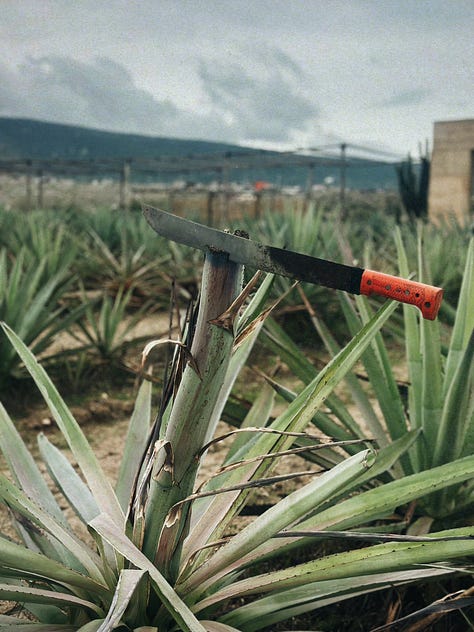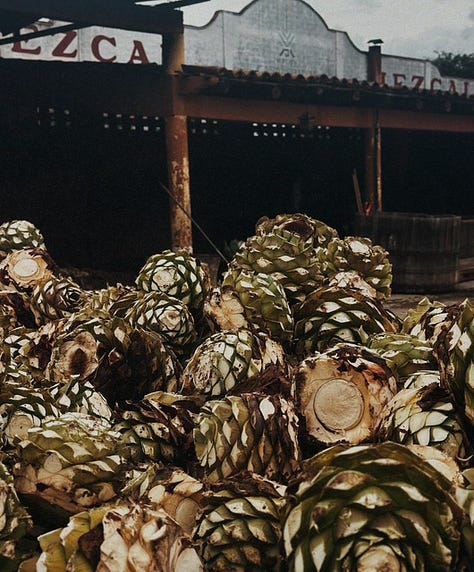In Solidarity and Protest
a long essay in which I try to find words to express my thoughts, grief, and anger over the events of these past few weeks
San Diego, California
I was slicing Persian cucumbers for pickling when I saw the notification slip down the screen over the recipe I had pulled up on my phone. A chilling headline: South Park Restaurant Raided by ICE.
It happened just eight miles south, two neighborhoods down from our old rental house. A beloved local Italian restaurant invaded by 20-25 masked agents in variations of tactical gear, variations of uniform, carrying guns, yelling commands.
They surrounded the restaurant and burst in as staff were setting tables, filling pitchers, chopping vegetables, preparing to open for the evening dinner service. They entered violently, without any semblance of calm or respect for a private business—they were prepared to fight, to harm in the name of a misguided (corrupt/toxic/evil) sense of justice. They handcuffed the employees and demanded to see I.D., and ultimately arrested four who did not have their I.D.s with them.1
Imagine the profane shouts, the disarray, the confusion, the mingled scent of butter and herbs and sweat. Imagine the fear.
Locals crowded the sidewalks, swarmed the agents as they marched the four dishwashers and busboys, surrounding the unmarked vans, recording with their phones, cajoling, chanting, and blocking until agents deployed flashbangs into the streets.2
Imagine the thick, smoky air, the cries of neighbors grieving neighbors, the scene of overturned tables, the scent of forgotten dough burning in the ovens.
The excuse for the raid was based on a tip from 2020 that alleged more than a dozen employees were using fraudulent green cards and that the restaurant owner was abusing them. But the owner was not arrested and the employees were not peacefully approached or questioned but attacked based on a tip.
This event wasn’t isolated. It escalated. I sit now and write weeks after several targeted raids in Los Angeles at places of business, where day laborers and seamstresses and car wash employees were detained and arrested. Again, it didn’t take long for the local community members to congregate in protest, and while our government is calling it “out of control,” while they are labeling the protests violent, the majority of violence has been at the hands of agents brutalizing peaceful communities to traumatize mothers and fathers and daughters and sons, and anyone they deem unworthy of occupying space in these United States.
***
Several months ago, on a Sunday afternoon, I attended a march in downtown San Diego led by multi-faith leaders in support of our immigrant neighbors. First, we gathered hundreds deep in the high-ceilinged cathedral for a bilingual service. And then we turned around and marched outside in unison, taking our prayers and songs into the streets, declaring, “Unidos en Cristo” and “The Church stands with immigrants.” But I know it’s not enough to say “we stand with immigrants.” We must do so physically, like the South Park neighbors blocking those white vans, like the LA protestors physically protesting ICE and the National Guard, like the priests showing up to courthouses to bear witness and accompany immigrants to and from their meetings and hearings.
As I write this essay now (several weeks since I first began it), the so-called “Big Beautiful Bill” has passed, which designates literal billions to build detention centers, complete the border wall, and hire more ICE agents to infiltrate more streets, terrorize more people. More than 1,500 immigrants (including citizens and those attending court hearings) have been arrested in LA between June 6 and June 22. A detention camp that many are likening to a concentration camp was built in only eight days in the Florida Everglades.
Everyday, the horror swells.
***
Oaxaca, Mexico
In June, I traveled to Oaxaca, Mexico, to revisit this vibrant city and learn about its ancestral mezcal tradition. I have been intrigued by fermentation in many forms, from the literal practices that are deeply connected to specific places to the abundant metaphors and theories tied to these transformative processes. In mezcal, the fermented ingredient—the substrate—is an agave plant, more specifically the piña, the pineapple-shaped core that’s been stripped of its leaves. The process of making mezcal is layered and complex, but it is important to understand that time and smoke are essential components, and the resulting liquor is truly unique, boasting a terroir of a specific harvest, a specific location.
I wanted to learn why agave is sacred, how this diverse plant has been cultivated and utilized traditionally to nourish and soothe and celebrate.3
Our guide told us, “Mezcal is for everything. We say for everything bad, mezcal, for everything good, mezcal—para todo mal, mezcal, para todo bien, mezcal.”



To drink mezcal, I learned, you must be taught. You must humble yourself and shirk off everything you think you know about alcohol.4 You must be welcomed and received and offered a taste. You must not shoot it, but savor it.
After wandering through the fields, after carrying heavy piñas and “helping” with a harvest, after returning a splash of mezcal to the Earth and enjoying our first sip of it via a long agave leaf, after visiting a palenque and seeing the pits where the piñas are smoked, after smelling the sweet/sour scent of barrels full of the fermenting pulp, we sat at a bar and we drank beneath the tutelage of our guide. She helped us identify notes, explained agave varieties, pairings, distillation techniques. And after all of that, we all—Americans, New Zealanders, and Mexicans—ate lunch together.
At the table, we sipped more mezcal, ate quesilla and fresh corn tortillas and roasted meat, and talked. This small group of strangers, brought together by love of or interest in mezcal. And when the conversation dipped toward American politics, I listened. Our guide, who previously had a visa to work in the U.S. cannot safely return. Our new New Zealand friends, traveling throughout Mexico for a month, are avoiding the U.S. altogether.
We outsiders were not only welcomed at a table, but into a tradition, not to appropriate or co-opt but to savor and honor and enjoy. Even now, as our country grows increasingly hostile, increasingly inhospitable, as money pours into the streets for more masked men, for more unmarked vans, for more violence, for more terror…
We drank mezcal for all the good—the good of rain and harvest, the good of welcome and food and joy. We drank for all the bad—the bad of our inhospitable country, for its increasing danger, for its cruelty.
Perhaps drinking mezcal is like prayer—the act doesn’t change reality but provides an avenue for reflection, for connection, for hope.
***
Downtown San Diego
On July 4th, I gathered outside the downtown courthouse with a tiny group of chanting women. We held LED candles and shuffled in a circle on the sidewalk, interrupted every few minutes by passersby on their way to the fireworks. I didn’t know anyone but sensed kinship, standing alongside climate activists and immigrants and community leaders. I returned home tired and somber to find my Persian cucumbers, which had been bathing for weeks in salt and water and coriander, actively bubbling, evidence of transformation within their microbial community.
Things feel impossibly overwhelming, but there is so much we can do to protect and advocate for our neighbors. I am finding ways to be active locally in different ways. I also found this resource helpful, though there are many websites and organizations that have various lists and volunteer opportunities depending on location.
I’ll be writing much more about this later.
I can’t help thinking about Robert Capon’s words in Supper of the Lamb on the word “alcohol” as a simplistic descriptor of a vast and complex category of beverages, with nuances and histories that far supersede the rudimentary term. And while I know many who abstain for an abundance of reasons that are all valid, it is also essential (I think) that we recognize that alcoholic beverages have stories and meanings attached to them, like all fermentation practices that endure. Mezcal is deeply meaningful to the people of Oaxaca, and so I want to honor that—it is not just “alcohol,” it is heritage.





“Everyday, the horror swells.” Indeed it does. Thank you for your writing during turbulent, confusing, and horrifying times.
There is a depth in your words and spirit that I am unfamiliar with. I must come back to this again. I had a moment of seeing you sitting at the table with your new friends. 🙏🏼🕯️🕊️🩶